 W
WRussell Alexander Alger was an American politician and businessman. He served as the 20th Governor of Michigan, U.S. Senator, and U.S. Secretary of War.
 W
WAnthony James Barr, aka Tony Barr or Jim Barr, is an American programming language designer, software engineer and inventor. Among his notable contributions are the Statistical Analysis System (SAS), automated lumber yield optimization, and the Automated Classification of Medical Entities (ACME).
 W
WTheodore B. Basselin (1851–1914) was an American lumber magnate, best remembered for an endowed scholarship he created at the Theological College of the Catholic University of America. The Basselin scholarship has funded the philosophical education of many notable American churchmen.
 W
WSimon Benson was a noted Norwegian-born American businessman and philanthropist who made his mark in the city of Portland, Oregon.
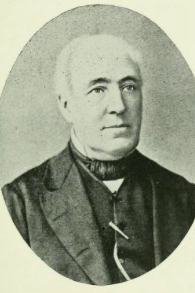 W
WJohn Black was a Scottish merchant and politician in New Brunswick. He represented Northumberland County in the Legislative Assembly of New Brunswick from 1793 to 1795.
 W
WJohn Rudolphus Booth was a Canadian lumber tycoon and railroad baron. He controlled logging rights for large tracts of forest land in central Ontario, and built the Canada Atlantic Railway to extract his logs and to export lumber and grain to the United States and Europe. In 1892, his lumber complex was the largest operation of its kind in the world.
 W
WWilliam M. Bray was a member of the Wisconsin State Assembly and the Wisconsin State Senate.
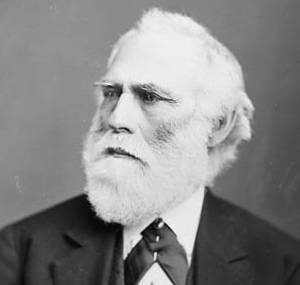 W
WHenry Franklin Bronson was an American-Canadian lumber baron known as one of Ottawa's early entrepreneurs, establishing a large lumber mill at Chaudière Falls on the Ottawa River. Bronson's efforts helped to convert a fledgling small town into a prosperous city.
 W
WWellington R. Burt was a lumber baron from Saginaw, Michigan. At the time of his death, his wealth was estimated to be between $40 and $90 million. For a time in the early 1900s, Burt ranked as one of the eight wealthiest men in the United States. He was best known for his lumber mills and timber holdings, but was also involved in iron mining, railroads, salt mines and finances. Burt was a politician, holding the offices of Mayor of East Saginaw (1867–68) and member of the Michigan Senate (1893–94). In his final years, he lived alone in a mansion with his servants. Estranged from friends and family and nicknamed "The Lone Pine of Michigan", he officially died of "senility" at age 87.
 W
WJames Campbell (1830–1904) was a Scottish merchant of timber and other building products based in Brisbane, Queensland, Australia. He founded the hardware firm James Campbell and Sons.
 W
WCyrus Sullivan Clark, together with George Benson Hall Jr. and the British American Land Company, were the largest participants in the lumber industry in the Eastern Townships of Quebec in the 19th Century.
 W
WDavid Marston Clough was an American politician. He served in the Minnesota State Senate from January 1887 to January 1893. He served as the state's Lieutenant Governor, January 9, 1893 to January 31, 1895. He was the 13th Governor of Minnesota from January 31, 1895 to January 2, 1899. He was a Republican.
 W
WTruman Wesley Collins was an American businessman, civic leader, and philanthropist from the state of Oregon. He was born into a wealthy and influential business family. Collins graduated from Willamette University and then attended graduate school at Harvard University. After college, he returned to the Pacific Northwest to join his family's lumber business. Over the years, he was the top executive for a number of Collins family businesses. He was also an active leader in several timber-related industry groups and contributed to selected education and religious institutions.
 W
WFrederick Denkmann was an American lumber baron based in Rock Island, Illinois. He teamed up with his brother-in-law Friedrich Weyerhäuser and formed Weyerhäuser-Denkmann Lumber Company.
 W
WJames Jameson Dickson was a Scottish Swedish logging industrialist and philanthropist.
 W
WRobert Dollar, also known as Captain Robert Dollar (1844–1932) was a Scots-American industrialist born in Bainsford, Falkirk, Scotland. The title "Captain" was honorary and he was called the "Grand Old Man of the Pacific". Both were bestowed after his entry into the shipping industry. Dollar became a lumber baron, shipping magnate, philanthropist; he was also a Freemason. His biography and an extensive introduction by him is contained within the book, Men Who Are Making the West 1923.
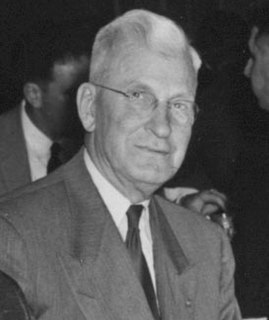 W
WJohn Welch Hamilton was a Canadian sports executive. He served as president of the Canadian Amateur Hockey Association (CAHA) from 1930 to 1932, president of the Amateur Athletic Union of Canada from 1936 to 1938, and was a member of the Canadian Olympic Committee for 17 years. His leadership of the CAHA and the AAU of C coincided with efforts to maintain amateurism and combat growing professionalism in sport. He appointed a committee to establish better relations between the CAHA and professional leagues, and praised the players and teams for quality hockey and growth of the amateur game in Canada despite the competition. He favoured professionals in one sport playing as amateurs in another, and took charge of the AAU of C at a time when the CAHA, the Canadian Amateur Basketball Association, and the Canadian Amateur Lacrosse Association challenged the definition of amateur, and later broke away from the AAU of C which wanted to hold onto purist ideals of amateurism.
 W
WPeter Herdic (1824–1888) was a lumber baron, entrepreneur, inventor, politician, and philanthropist in Victorian era Williamsport, Lycoming County, Pennsylvania in the United States. He was the youngest of seven children born to Henry and Elizabeth Herdic on December 14, 1824 in Fort Plain, New York. Herdic's father died in 1826 and Elizabeth Herdic remarried shortly thereafter. She was widowed again prior to 1837 when she moved her family to Pipe Creek, New York near Ithaca. Herdic attended school for just a few years while he worked on his mother's 50-acre (200,000 m2) farm. Herdic left his mother's farm in 1846 and arrived in Lycoming County later that same year, where he settled in Cogan House Township.
 W
WSamuel Freeman Hersey was a politician and "lumber baron" from the U.S. state of Maine. He served in the Maine State Senate and as a United States Congressman from the district which included his hometown of Bangor.
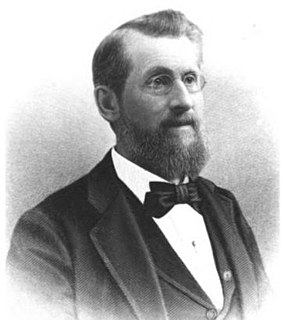 W
WGeorge Woodward Hotchkiss was a nineteenth-century pioneer lumber dealer businessman and journalist who wrote on the lumber industry. He was the co-founder and editor of several newspapers, including the world's first lumber journal Lumberman's Gazette. He helped publish a lumber trade manual that sold 40,000 copies. Hotchkiss is considered the father of lumber periodicals.
 W
WJames Henry Hoyt was a railroad entrepreneur and member of the Connecticut Senate representing Connecticut's 12th District from 1857 to 1858.
 W
WOrrin Henry Ingram was an American lumber baron and philanthropist from Eau Claire, Wisconsin. Orphaned at age 11, he established sawmills in Ontario, Canada, and the Chippewa Valley of Wisconsin. He was a banker and philanthropist in Eau Claire.
 W
WWilliam Stephens Irvine was a member of the Wisconsin State Assembly.
 W
WBenton Franklin Jensen served thirteen consecutive terms as a U.S. Representative from Iowa's 7th congressional district in the southwestern corner of the state. While on the floor of the U.S. House on March 1, 1954, he was one of five Congressmen wounded by gunfire from a Puerto Rican Nationalists firing from a visitors' gallery.
 W
WDavid Joyce was an American "lumber baron" and industrialist. His fortune was eventually inherited by Beatrice Joyce Kean who used it to establish the Joyce Foundation in 1948.
 W
WJohn Lanzel Kaul (1866–1931) was an American businessman. He was involved in the timber industry and was a prominent figure in Birmingham, Alabama.
 W
WJohn Henry Kirby was a businessman whose ventures made him the largest lumber manufacturer in Texas and the Southern United States. In addition to serving two terms in the Texas Legislature, he would also establish the Kirby Petroleum Company. With his successful reputation, he would be known by his business peers as "The Prince of the Pines" and "The Father of Industrial Texas". Kirbyville, Texas in Jasper County is named after him, as is Kirby Drive and Upper Kirby in Houston.
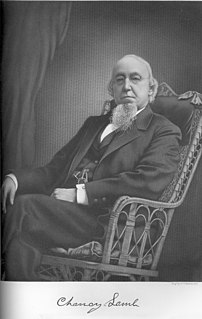 W
WChancy Lamb was a pioneer in the lumber industry in Clinton, Iowa.
 W
WRobert Alexander Long was an American lumber baron, developer, investor, newspaper owner, and philanthropist. He lived most of his life in Kansas City, Missouri and founded Longview, Washington and Longville, Louisiana.
 W
WJohn McGraw was a wealthy New York State lumber merchant, philanthropist, early benefactor and trustee of Cornell University.
Harry A. Merlo was an American businessman and philanthropist in the state of Oregon. A native of California, he was chief executive of then Fortune 500 company Louisiana-Pacific after it was divested by forest products company Georgia-Pacific, which were both then headquartered in Portland, Oregon.
 W
WSilas C. Overpack was a blacksmith, wheelwright, and businessman. He owned a shop in downtown Manistee, Michigan, at 87 Pine Street, called S.C. Overpack Wagon, Carriage and Blacksmith Shop and is associated with the invention of Michigan logging wheels. These unusually large wagon wheels were used in the timber industry for hauling logs in difficult terrain.
 W
WCharles Lathrop Pack, a third-generation timberman, was "one of the five wealthiest men in America prior to World War I". He owed his good start in life to the success of his father, George Willis Pack, and grandfather, George Pack, Jr. in the forestry sector. Growing up on Lake Huron in Michigan's Lower Peninsula, Charles L. Pack lived in Cleveland, Ohio, from 1871 to the early years of the 20th century. With "savvy investments ... in southern timber ... banking and real estate", Pack became a multi-millionaire. During World War I, he was a principal organizer and was heavily involved in the war garden movement in the United States.
Robert Boisseau Pamplin was an American businessman and later philanthropist. A native of Virginia, he rose through the ranks of Georgia-Pacific where he later served as president and chairman of the board. He helped relocate the company to Portland, Oregon, where he retired and resided until his death.
 W
WSir George Halsey Perley, was an American-born Canadian politician and diplomat.
 W
WWilliam Price was a Quebec lumber merchant and manufacturer.
 W
WAlexander Rankin was a Scottish-born merchant and political figure in New Brunswick. He represented Northumberland County in the Legislative Assembly of New Brunswick from 1827 to 1852.
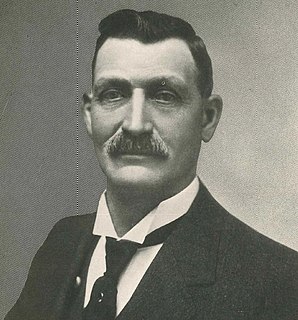 W
WWilliam Albert L. Rath was a German expatriate living in America. He was known for developing Mason County and Ludington, Michigan. Rath was a lumber baron, business magnate and philanthropist. He was mayor of Ludington for one term and a member of the Ludington Board of Trade. He was a member of the Ludington board of aldermen and the county board of supervisors.
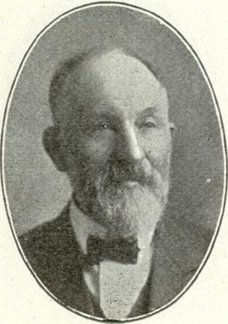 W
WThomas Reynolds was a member of the Wisconsin State Assembly.
 W
WAaron Rose (1813–1899) was an American pioneer of Michigan and Oregon, who founded the city of Roseburg, Oregon.
 W
WHenry Williams Sage was a wealthy New York State businessman, philanthropist, and early benefactor and trustee of Cornell University.
 W
WLouis J. Simpson was an American shipping and timber magnate and the founder of North Bend, Oregon. He also ran unsuccessfully for governor of Oregon in 1918. Simpson dropped out of the University of California in 1897 to run his father's ship fleet and lumber mills on Coos Bay. The gardens of his clifftop estate are now part of Shore Acres State Park.
 W
WIsaac Stephenson was an American politician of the Republican Party who represented Wisconsin as both a United States Representative and a United States Senator.
 W
WAlexander Stewart was a member of the United States House of Representatives for Wisconsin.
 W
WCharles Richard "Chuck" Strahl, is a Canadian businessman and politician. He was a Member of Parliament from 1993 to 2011. First elected for the Reform Party, he was the leader of the Democratic Representative Caucus that left the Canadian Alliance in opposition to Stockwell Day's leadership. When the Conservatives won power in 2006, he became a prominent cabinet minister and served as Minister of Agriculture, Indian and Northern Affairs, and Transportation.
 W
WCharles Wilhelm Thesen was a Norwegian-born South African shipowner and timber merchant who played a leading role in the public affairs of the South African town of Knysna. He was actively involved in the timber and shipbuilding industry of the region, and acquired Paarden Island in the Knysna Lagoon, on which he built a sawmill and shipyard. The island was later renamed Thesen Island, after him and his family.
 W
WJohn Waldie was a Canadian politician and businessman.
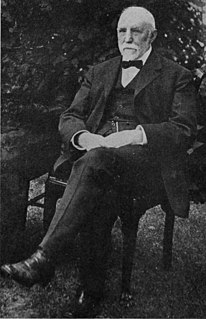 W
WFriedrich (Frederick) Weyerhäuser, also spelled Weyerhaeuser, was a German-American timber mogul and founder of the Weyerhaeuser Company, which owns saw mills, paper factories, and other business enterprises, and large areas of forested land. He is the eighth-richest American of all time, with a net worth of $85 billion in 2016 dollars. He was known as the "timber-king of the Northwest."
 W
WWilliam John Young was the founder of the W.J. Young Company. He revolutionized the slow system of rafting logs by floatage with the current of the river in 1865 by a successful experiment of pushing log rafts ahead of a steam boat, independent of the river currents, and this with his introduction of the system of brail rafting, facilitated the movement of log stock while greatly lessening the expense of delivering them from the booms at Reef Slough and other points, to the mills at various points on the lower river; but for these advantages, the work of the mills would never have reached the vast volume to which they soon attained. Mr. Young was one of the original members of the Mississippi River Logging Company, his interest in which he sold in 1893, after being for many years one of the most active and influential members of the company.